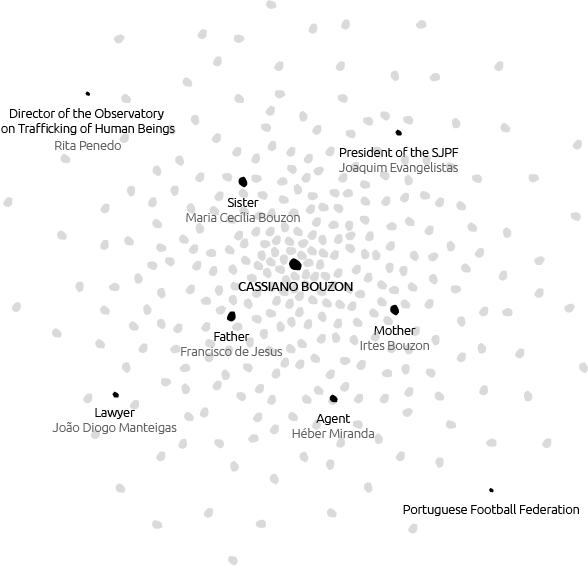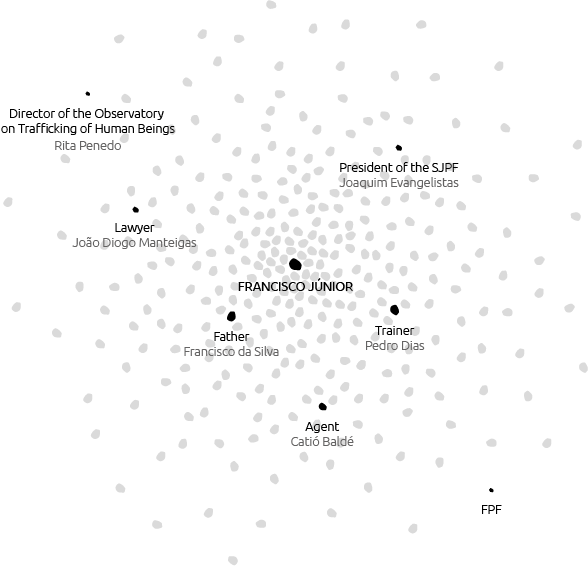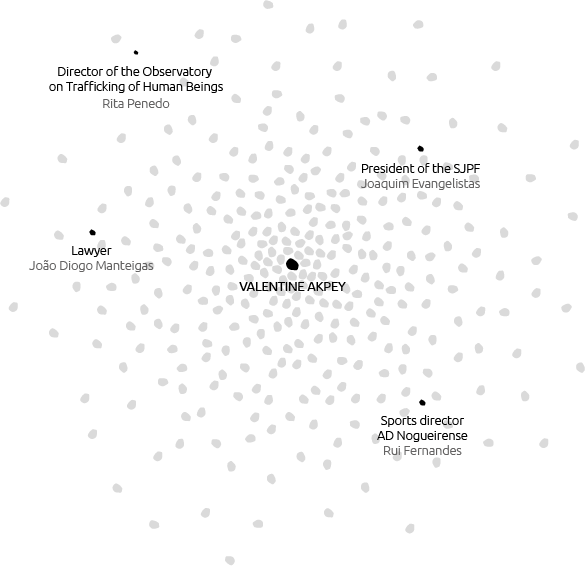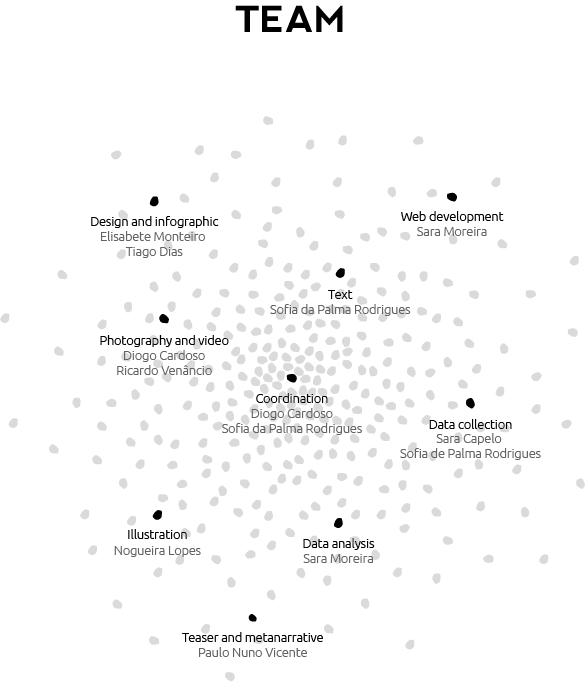Welcome to Divergente chapter I
Paulo Nuno Vicente, Divergente’s director
Divergente has emerged during challenging times for journalism: the erosion of sustainability models, the increasing precariousness of the profession, brain-drain, the endless cycles of internships for newcomers, the opaqueness of media company ownership structures, hidden advertising, and the dizzying obsession for “clicks” and “page views”, to name but a few of the issues journalism is facing.
Against this background, we admit that the idea of original investigative work, carried out with the level of study and detail that only time allows, sounds somewhat utopian. Perhaps. However, we believe that this kind of work is essential for our complex societies: we don’t consider pluralist democracy to be something that has been handed down to us on a plate; it is our heritage and we must fight on a daily basis to preserve it.
We believe that journalism needs a renaissance- in both its conception and its practice – we consider “revealing” to be a fundamental action and “delving deeper” to be an auxiliary one. We want to achieve this with our readers – and not just for them. With the support of concerned and committed citizens, we believe that our profession can be revitalized.
Our work agenda has three pillars: investigation, storytelling and big data. We take on one big investigative project per year, but we do not commit to producing things on a regular basis. We guarantee our readers the most thoroughly investigated and well-narrated “story” possible. As well as our more complex investigative work, we will regularly publish news and multimedia pieces, which will always be backed up with their own research and transparently independent.
Divergente is a Bagabaga Studios journalism project. Bagabaga Studios is a digital media cooperative, created in 2013.
The research process chapter II
In this first edition we have published an original investigative piece developed over the course of a year and a half, across three continents – Africa, Latin America and Europe. In all these we carried out the original fieldwork, partially supported by a production grant from the Journalism Fund.
We believe that transparency of processes is essential to ensure public trust in journalism. For this reason we adopted an internal fact-checking system, increasing the robustness and credibility of the information we collected. We also explain openly to readers the different research stages completed by the two main authors of this published piece – Sofia da Palma Rodrigues and Diogo Cardoso.
News stories kept popping up here and there of different cases of young football players from Africa and Latin America arriving to train in Europe, only to subsequently be abandoned. No member of our team could remember having seen a journalistic piece that got to the heart of the problem and its complex network of interactions. An idea started to take hold in Sofia’s mind.
We wanted to give a voice to the main characters, to reconstruct the web that had brought them to Europe, to counteract the tendency to overvalue official sources, distant and authoritarian voices. We wanted to give a face to the numbers: Francisco, Valentine e Cassiano are people with an active voice. Using them as a starting point we arrived at all the other sources heard in this report:



As a first step in the investigation an email was sent to Eliano Jorge, a journalist at the Folha de São Paulo, after Sofia read his report on the harassment committed by European clubs. It was through Eliano that Francisco de Jesus, father of Cassiano Bouzon, “Brazil’s Messi”, was contacted.
We started off hoping to make contact with nearly all Portuguese-speaking countries, but the information we received from the start made it clear that it would be relevant to look at all African and Latin American countries, establishing links between major European competitions and the players’ origins.
Between March and December 2014, Sofia lived in Brazil. During this period, the FIFA Disciplinary Commission’s decision to ban Barcelona FC from hiring new players was announced, as a result of infractions relating to the transfer of minors. The “hook”, in journalistic jargon, was ideal.
The first meeting between our journalist and Cassiano’s family took place on 22 April 2014. A friendly relationship ensued, with Sofia being invited to Cassiano’s confirmation. He was 13 years old at the time. A year and a half later, Sofia tells us, “many of the conversations we had weren’t journalist-interviewee conversations, but family dialogue. That’s why I didn’t publish all of that material.” One afternoon, Cassiano was more interested in showing her how to make tapioca than giving her an interview. But the tapioca would have to wait.
The data chapter III
Around this time, the search for relevant statistical data began, which would allow us to identify global trends, to frame or reveal events that were underway, in a narrative form, in the context of the various competitions in which the main Portuguese, Spanish, French, German, Italian and English clubs participate.
The first successful contact was Carlos Henrique Ribeiro, a Physical Education university lecturer, at the Gama Filho University (PPGEF) who has undertaken relevant research in the area. Carlos was the first to explain to us that it would be “difficult, if not nearly impossible, to find organised data in football-related institutions about players originating from Latin America and Africa. There are many reasons for this, including the fact that as a general rule they are not registered.”
Between May and October 2014, we contacted the Footballers’ Unions in England, Spain and Portugal, FIFA, the Portuguese and Italian Football Federations and the CIES Football Observatory. It was at this time that the platform zerozero.pt, was first mentioned. Carlos Henrique Ribeiro told us that, to his knowledge, it was the “most complete public database” in the area.
We wanted to understand the process used for the collection, handling and publication of information by the website, which introduced itself as containing “unrestricted information of a vast number of national and international competitions.” Luís Rocha Rodrigues, the zerozero.pt information director, explains that all the data are “collected and entered directly by us and our network of collaborators. Data entered by one of our collaborators is always checked.”
According to Luís Rocha Rodrigues, the statistical data referring “to the adult squads of teams from the six leagues are completely reliable. One hundred per cent. As regards the youth leagues, (…) those that exist are confirmed with a nearly 100 per cent accuracy rate. (…) The possibility that a fictitious player or two would be included in the database is practically nil, as in these cases, the readers/collaborators are swift to report these situations to us, and they are promptly dealt with,” he explains.
Faced with the inexistence (or unavailability) of an official database, we decided to adopt zerozero.pt as the pillar of our research and answer the two main questions: 1) Of the African and South-American footballers who are playing in the various levels of the clubs present in the Portuguese, Spanish, Italian, French, English and German premier leagues during the 2014/2015 season, how many arrived in Europe aged under 18? 2) Of these, how many are still minors and what clubs are they in?
We do, however, recognise some limitations – this is to be expected from a non-official database: it is not possible to differentiate the motives that brought the young people identified; the numbers refer only to the 2014/2015 season; the only competitions (amateur and professional) analysed are those in which the big clubs from all these countries participate.
Once we identified the source of the data, we built our own compilation and extraction tool. This allowed for the quick identification of cases and incidents that caused alarm bells to ring, which proved that the research was starting to touch upon sensitive areas.
This is how we came across the names of Francisco, the Guinean playing at Everton, and Valentine, who attracted our attention for being a Nigerian living in the villages of Nogueira do Cravo, in the district of Coimbra, Portugal.
The focus of the investigation now published is on players originating from Africa and Latin America who travel to Europe to play in the various levels of the main European leagues and who were under 18 when they arrived in Europe. Portugal is their main port of entry. And the rest are “stories”. Welcome to Divergente!




Ola , estou fazendo uma pesquisa nesse campo , sobre jogadores africanos que imigraram para a Europa, estou tento dificuldades para encontrar fontes de arquivos confiáveis dessa migração, poderiam me ajudar e indicar onde encontraram vossas fontes ?
não encontrei a vossa bibliografia .
desde já obrigado
melhores cumprimentos
Yuri Pereira